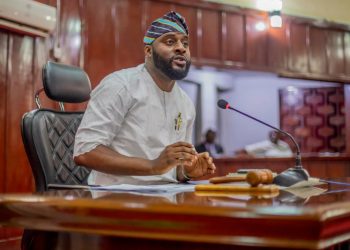Mental health care experts say more resources and education for Nigerians are needed to reduce the burden of mental health illnesses in Nigeria.
At the Mental Health Conference that the Asido Foundation organized in Ibadan on Thursday, they made this statement.
The Director, Global Training Beck Institute USA, Dr. Allen Miller, noted that fewer resources were being committed to mental health care in Nigeria and other countries he had visited.
Miller said Nigeria has a very large population with limited practitioners, and one way forward is to train more mental health professionals.
He said that while there would never be enough professionals, the already-established professionals should also train others to understand the nature of normal problems.
“We need to help everybody know how to deal with daytime stresses and normal stress, but not until people are over the edge of depression and anxiety,” Miller said.
A renowned psychiatrist, Prof Ayo Guruje, said that when people are under stress, they are likely to develop all sorts of health problems, including mental health problems.
Guruje, who retired from the University College Hospital (UCH) in Ibadan, said mental health challenges were global phenomena, noting that lack of sufficient resources was the major problem for Nigeria.
He identified brain drain as another challenge but said, “We can still do a lot with the resources we have.”
Speaking also, the Founder of the Asido Foundation, Dr Jubril Abdulmalik, told NAN the conference theme “Mental health as a universal human right” was apt.
He said every Nigerian should have access to quality mental care, and that was why there was a documentary on “Project Hope.
“Project Hope is a pilot project of the Asido Foundation that aims to pick up from the streets people who have mental illness, take them to the hospital, and pay for their treatment and rehabilitation.
“This is just to demonstrate that with treatment, they can recover and return to their normal and productive lives,” Abdulmalik said.
He noted that the conference had stakeholders from all walks of life, including the government, saying this would help them all understand the message of mental health for all.
Also, Director of Women’s Mental Health, Asido Foundation, Dr. Gbonjubola Abiri, said “Project Hope” was launched in 2021 to cater for the well-being of homeless mentally ill people in Ibadan.
“We started with 18 people, and 15 people have been treated, rehabilitated, and reunited with their families.
“Three people are still undergoing treatment. However, the goal at the end of the day is to ensure that every individual has access, information, and the care they need when they come down with mental illness,” Abiri said.
Also, a Clinical Associate Professor of Psychiatry at the University of Pennsylvania, Dr. Sunmolu Soyinka, said it was important to create an atmosphere where it is safe to talk about mental issues.
He noted the effect of stigmatisation, which he said has been enormous on mental health patients, which was based on misinformation and partial truth.
“You just need to look around you and see that a lot of people are suffering from mental issues.
”As much as we talk about this thing, we need to remember that they are treatable, and with the right treatment early, people get better,” Soyinka said.









